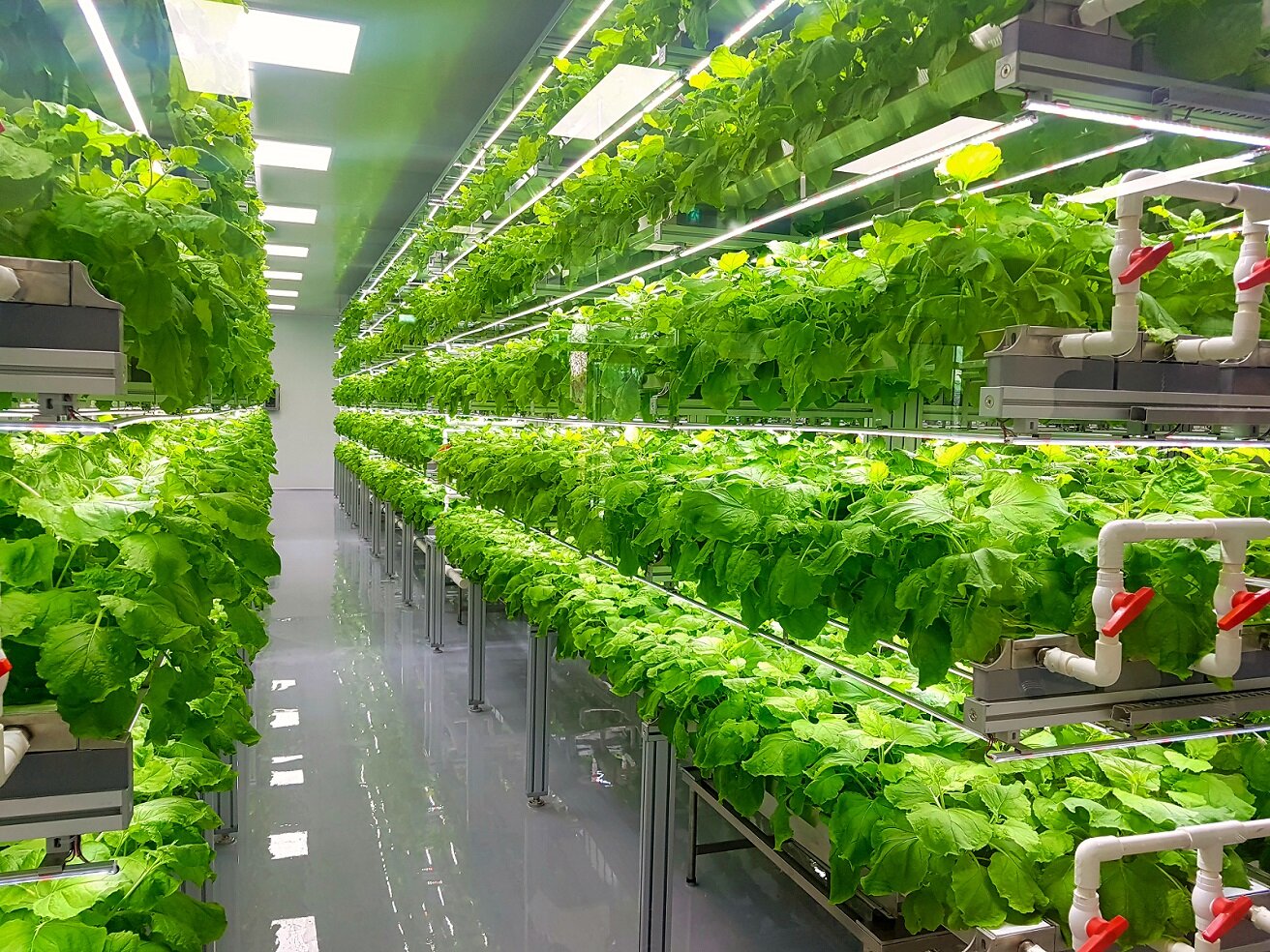By Jason Matthews
As the global population grows, it becomes essential to find efficient techniques in agriculture to keep up with the increasing demand for food. Russian scientists are trying to improve vertical farming technology to increase food security.
Image Credit: YEINISM via Shutterstock - HDR tune by Universal-Sci
Potentially impending food crisis
Worryingly, only a handful of countries worldwide are what is called 'self-sufficient' [that is, they produce more food, of sufficient variety to keep all its citizens healthy, than they consume]. An interesting example is Europe; France is the only country that can boast of being truly food independent. All other European countries must import substantial amounts of produce to keep their citizens fed.
One of the main problems with producing food is space. It takes an average of 700 square meters [or 0.17 acres] to feed one person. For reference, a small city with a population of around 100,000 would require an area of approximately 70,000,000 square meters to feed everyone in that city.
Vertical farming
One potential solution to the aforementioned problem may be vertical farming, where crops are grown in an artificially controlled environment in vertically stacked layers. This method takes far less land area to grow the same number of crops and yields more food per plant with, on top of that, a substantially lowered risk of adverse environmental factors destroying the harvest.
However, the cost of running these types of farms is much higher than traditional methods and often outweighs the increase in production. For this reason, existing vertical farms currently mainly concentrate on high-value produce like herbs and berries.
Food security
Russia supplies much of the world's food, most notably grain, but the country's food supply has been severely affected by natural events over the last few decades.
Image Credit: Cameris via Shutterstock - HDR tune by Universal-Sci
Most recently, in 2010, Russia halted all grain exports due to drought. Grain reserves approached dangerously low levels affecting other farm products like meat and threatened food shortages across the country. Countries that rely on Russian grain were also affected by this, and the Russian seed bank was partially depleted.
COVID-19 has had a similar effect, and Russia has announced restrictions on exports extending through July 2021. The Russian government is understandably keen to develop these new technologies to protect their food supply and exports.
Breakthrough technology
The brand new Agrotechnologies for the Future scientific center in St. Petersburg only just opened in 2020. Still, scientists are already making breakthroughs that may help more urgently needed crops like potatoes, oil-producing plants, and grain cost-effective to grow in vertical farms.
Their latest prototype farm focuses on rapid seed reproduction because replenishing the country's seed bank is a top priority. The scientists tested the new facility using seed potatoes that can be used to fill traditional potato fields.
The prototype uses dynamic LED lighting to deliver precise wavelengths and intensities of light, specifically tailored to the individual plants and their growth cycles. The plants are fed by a nutrient-rich substrate, automated irrigation system, and the air is sterilized and climate-controlled. By digitally controlling all these systems using an array of different sensors, the scientists can grow ten times the crops per 1m2 and have up to six harvests per year.
The module stand with automated watering and multichannel LED lighting systems. - Image Courtesy of the Federal Research Center for Biotechnology of the Russian Academy of Sciences
Vasiliy Zotov, a Candidate of Biological Sciences and the head of the project, explained, "Our goal was to develop a universal multifunctional tool that would tap into the natural potential of different varieties, increase their productivity, and improve quantitative parameters. We used nature-like technologies and adjustable LED lighting without adding any genetic modifications". He added, "It is economically viable for industrial cultivation of the crops in demand. In addition, it is completely environmentally friendly and waste-free."
The team is currently collecting data on how tweaking the various systems can further improve efficiency, generate even higher yields from each harvest, and how they can apply these techniques to other crops.
Experts predict that the world will reach a food deficit in years, not decades. If nothing is done to change our consumption or increase our ability to produce food, some suggest we will start to see shortages as early as 2023. This means technology breakthroughs like this are not only important but also urgently needed.
Sources and further reading:
If you enjoy our selection of content, consider subscribing to our newsletter
FEATURED ARTICLES:











